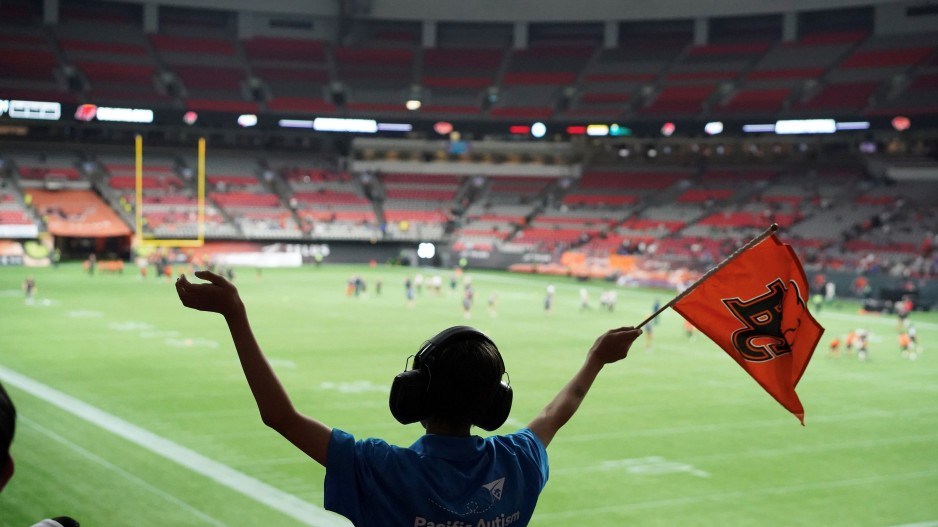This column was originally published in BIV Magazine's Philanthropy issue.
Autism is the most common neurodevelopmental disorder in Canada: One out of every 50 Canadian youth has a diagnosis.
Autism – which touches every region, class and culture – is a common and serious developmental disorder that profoundly affects the way you feel, communicate and learn. And across Canada, 79 per cent of neighbourhoods are home to one or more children with autism.
The facts surrounding autism can be grim. Autism does not cause death, but individuals with autism die an average of 36 years younger than individuals in the general population because of other conditions and circumstances. Accidental drownings are 40 times higher in the autism community. About one third of children with autism remain minimally or completely nonverbal throughout their lifespan, speaking few or no words.
These vulnerabilities, and uninformed responses to autistic traits, can lead to devastating consequences for autism community members. Yet most professionals have no training on autism or on how to interact successfully with this community.
Furthermore, when it comes to inclusion, although most autistic individuals want to work, only 14.3 per cent of autistic adults are employed.
Autism doesn’t come with a manual for families, but many in the autism community do have parents and siblings who never give up. I understand this because of my first-hand experiences as a mom in the autism community, and as co-founder of Pacific Autism Family Network (PAFN), along with my husband and business partner Sergio Cocchia.
Despite a growing understanding of the needs of this community, there is little or no government support available for autistic individuals or their families in many regions across the country.
But new and better things are on the horizon. For over 12 years, the PAFN has been working with police, firefighters, paramedics, hospital staff and other professionals to improve awareness, education and understand related to autism. To date, our organization has trained over 15,000 first responders on how to recognize and effectively help autistic individuals.
In part through our advocacy, some of Canada’s biggest businesses are starting to pay attention to the autism community. This fall PAFN and Vancouver International Airport launched a joint initiative to make air travel more accessible for autistic people and their families. The initiative includes professional training for airport staff, skills building and communication assistance for travellers, as well as a supported work program in a newly launched airport coffee shop.
There is power and mutual benefit to supporting autistic individuals in the workforce, and I fundamentally believe employing someone with autism is one of the best decisions an organization will ever make. To that end, PAFN has developed a suite of employment-focused programs for individuals with all different skill levels. This includes programs for supporting youth employment, inclusive workforce engagement, adult pre-employment skills and education and training for autistic individuals with high-support needs.
Together with our in-house partners, PAFN helps over 160 individuals daily through four locations in B.C. We focus on the helping people throughout their lifespan, and offer programs that span from an inclusive pre-school, to a first-of its-kind program that tackles the challenges of autistic adult palliative care. Our programs also extend across the country through our national initiative, AIDE Canada, which is a free online resource.
Working in this space is challenging, but even the small things that we do to be kind can make a huge difference for our kids and our families. As we collectively consider ways to support and develop greater inclusion, diversity and equity in our businesses and communities, I urge you to consider how we can support neurodiverse individuals and the families they rely on.
Wendy Lisogar-Cocchia is CEO of Century Plaza Hotel and co-founder of Pacific Autism Family Network.
This column was originally published in BIV Magazine's Philanthropy issue. Check out BIV’s full digital magazine archive here.




